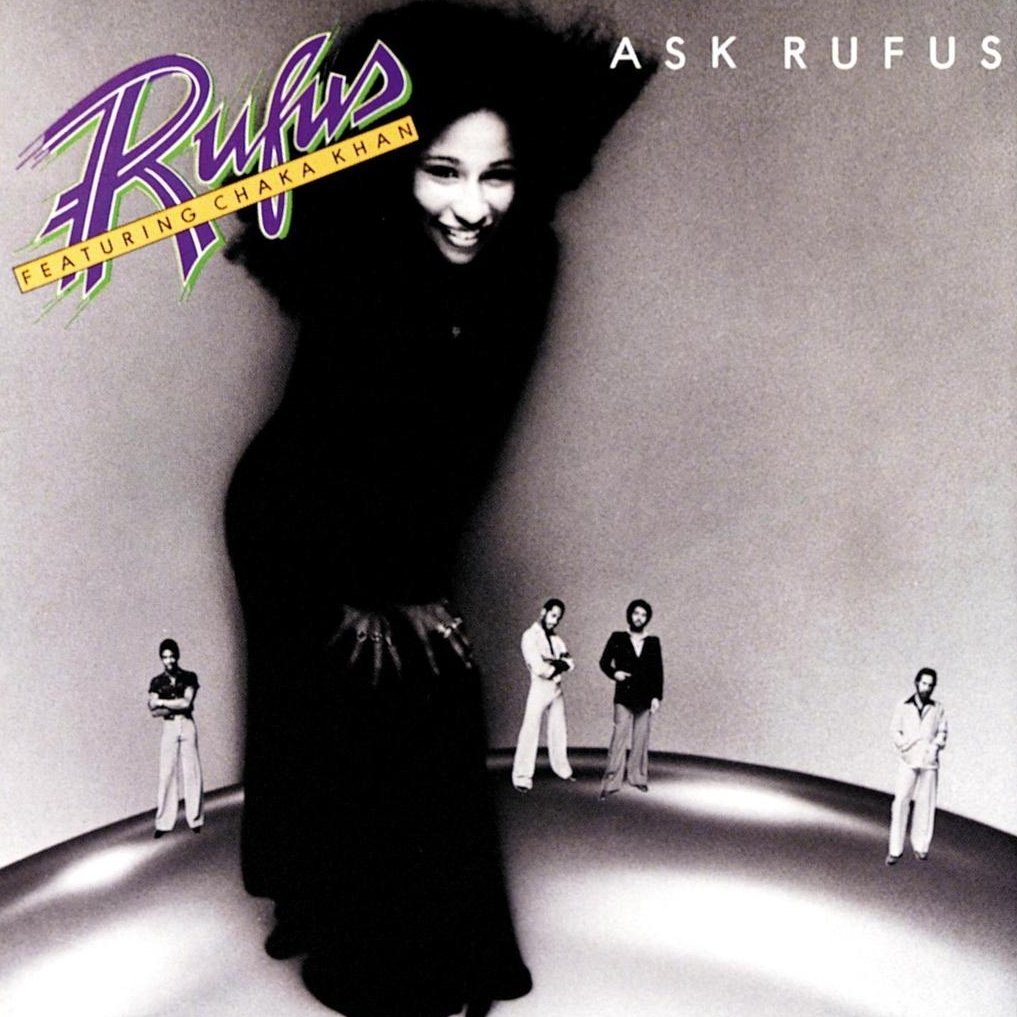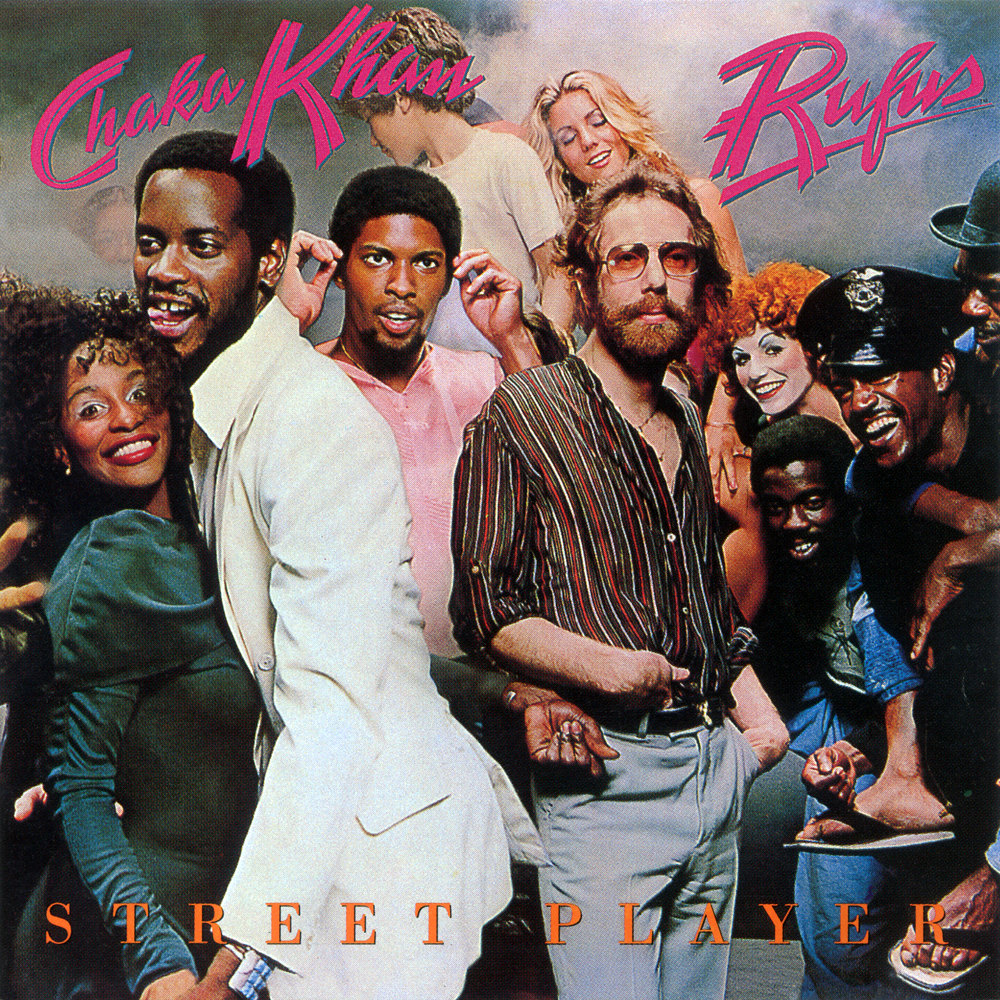Happy 50th Anniversary to Rufus & Chaka Khan’s second studio album Rags To Rufus, originally released in May 1974.
In July 1973, the debut album from a Chicago based band named Rufus slipped out into the world to little fanfare. In existence since 1969, the group readied themselves for their debut, but lost their lead singer just after signing a deal with Epic Records in 1972. Paulette McWilliams departed for other pastures, but she recommended a close friend as her replacement. That replacement was Chaka Khan.
Anyone who reads or listens to an interview with Chaka Khan will know that hinting or intimating about her life story and artistic journey is not her way. She is sharp, honest and direct about both her gifts and her faults. Born in Great Lakes, Illinois to a middle-class couple, she was a Black Panther by the age of fourteen, handing out leaflets to raise funds and awareness for breakfast clubs for poor Black families in Chicago.
By the time Khan took over vocal duties in Rufus from McWilliams, she’d become part of a trend that she identified during her conversation with Questlove for his podcast Questlove Supreme (QLS), for white bands to be fronted by a “Black chick.” Although the debut LP got some attention via radio play, sales were minimal. Changes were needed. Some changes were voluntary, like musicians leaving, but the biggest change was an involuntary one forced on the band by the record company.
The one thing that couldn’t be missed on the meekly-performing album was Chaka Khan—her voice and charisma stole the show. But against her will, the record company decided that from that point on she would receive separate and equal billing—Rufus no more, now Rufus and Chaka Khan. Khan herself was aghast and didn’t ask for or want the accolade, but with the benefit of hindsight, her talent made it almost inevitable.
So, by the time sessions for Rags To Rufus took place, personnel had changed, but Khan was singing not just lead but also backing vocals too. Despite the change in name and any associated resentments, the process of choosing songs was a fairly democratic one, according to Khan on QLS at any rate. She was vehement in her choices though and refused to sing plenty of songs that were presented to her.
Listen to the Album:
The two songs that stand out head and shoulders above the rest of the material both come, at least in part, from sources external to the band. And the shadow of a musical genius looms large over the project as a result. To the casual observer Stevie Wonder is a picture of perfection, a paragon of virtue but here his mischievous side is revealed. One of his band members, Ray Parker Jr., co-wrote the album-opening, foot-stomping slab of funk “You Got The Love” and this kickstarted the album by landing at #11 on the Billboard Hot 100.
According to Khan though, Wonder himself popped by the recording studio and started suggesting songs for the group to use as a way to “cockblock” Parker Jr. Khan, as stubborn as she was brilliant, turned down song after song to Wonder’s surprise. Until, that is, he began playing about with what turned out to be “Tell Me Something Good.” At this point, Khan’s ears pricked up and she worked with Wonder to turn it into an even bigger success, with it rising as far as #3 on the Billboard Hot 100. Wonder is credited as the writer but Khan made the claim, almost 50 years later, that she co-wrote it with him but gave him all the credit in the naïve manner of a 20-year-old starting out in the business.
Those two absolute belters aside, the rest of the album provides ample proof that Khan can sing anything and convinces and connects with the listener in the process. There’s a hint of the blues about “I Got The Right Street (But The Wrong Direction)” and a smidgeon of country on ‘Walkin’ In The Sun,” while she sends spines tingling on the piano ballad near the album’s end, “In Love We Grow.” To be so adaptable and powerful at the age of 20 is a quite astonishing thing.
Further testament to that is the fact that not all of the material is especially memorable, except for the fact that she sings the absolute shit out of it. She certainly obliterates bandmate Ron Stockert on the gospel ballad “Swing Down Chariot,” which serves only to highlight the renaming of the band as an inevitability. Aside from the group itself, the orchestrations come courtesy of Clare Fischer and who’s to say this isn’t one of the albums Prince listened to and arrived at the notion of using him for similar work later in his life and career?
Enjoying this article? Click/tap on the album covers to explore more about Rufus & Chaka Khan:
Discovering Chaka Khan’s career has been a deep joy to me, someone who’s only formative knowledge of her started and ended with her singing “I Feel For You” on Top Of The Pops in 1984, when I was a 9-year-old kid. To explore backwards and hear her versatility and virtuosity, the talents that made my beloved Prince worship her, has enriched my life. And you can’t ask any more than that, can you?
Listen:



